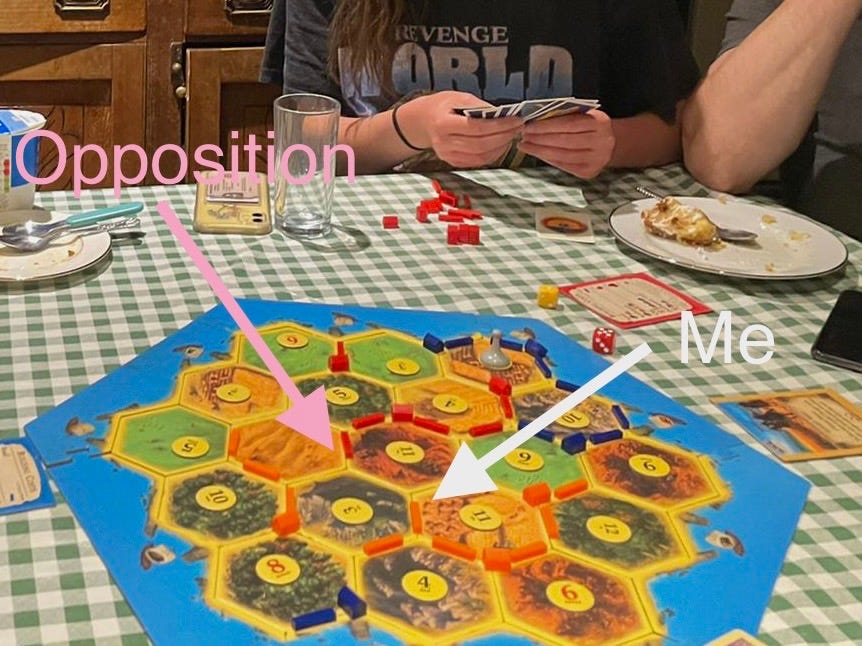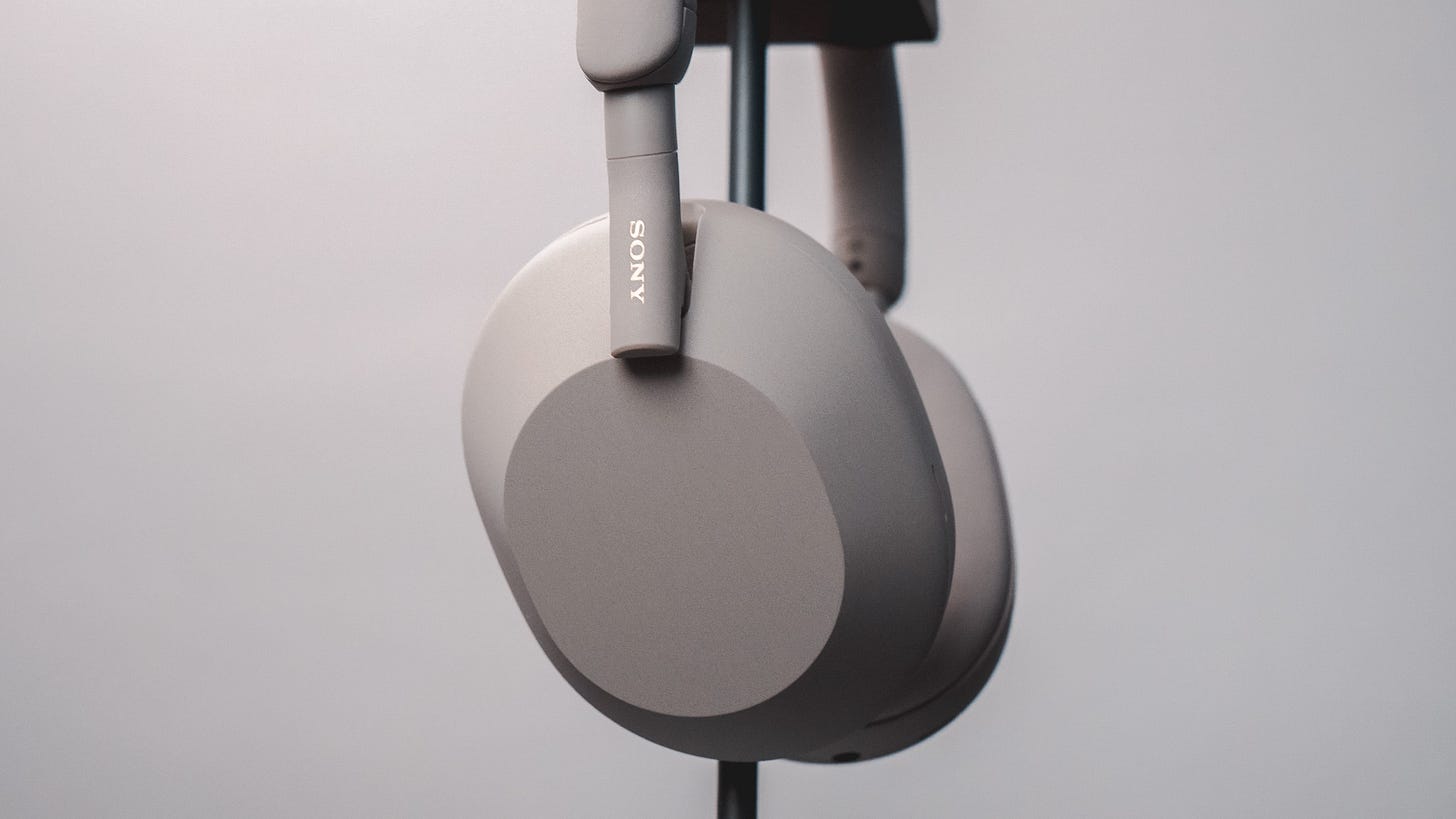This week, I’m on a trip away to Somerset. My contribution to the trip so far has been 1) good vibes and 2) Catan - an addictive strategy board game.
The premise of the game is simple: to be the dominant force on the island of Catan by building settlements, cities, and roads. It’s SO much fun - we’ve played it every night since we got here.
Last night, halfway through a game, I found myself at a crossroads. An opposition player (red) boldly encroached on what was implicitly my (orange) territory. FFS. I had two options:
I could change direction, build towards him and keep his force at bay.
Or continue course for the coast where high in-demand resources remained untapped.
It was a tough call. But I couldn’t risk losing what I had for something I didn’t have. So, I chose to respond defensively (option 1).
After the game was finished, I learned that move was a waste. It would’ve been better spent elsewhere. But I didn’t regret it because it was still the right decision to make at the time.
This reminded me of an approach to decision making which Nasir Kharma talks about on Deep Dive with Ali Abdaal.
The idea is to focus on making better decisions in the present moment and be 100% okay the outcome regardless of what it is.
How? It goes like this.
Using the analogy of poker, you’re dealt with a set of cards (knowns), and so are the other players and the house (unknowns). There is imperfect information. After reviewing your hand, you make a decision to either fold, call or raise. Then, at the end of the round, everyone reveals their cards and you see if you’ve won or lost.
This is a game of probabilities. There is a statistically favourable decision for you to make - but it’s never 100% certain. You might win or lose. And that’s because the outcome is heavily influenced by variance and luck.
In other words, when making decisions, you can only choose based on the information (factual or subjective) you have right now. Whatever outcome follows, whether good or bad, is absolutely irrelevant - because it’s outside your control.
The topic nicely ties into an idea I read from Morgan Housel’s book on the Psychology of Money:
Luck and risk are both the reality that every outcome in life is guided by forces other than individual effort. They are so similar that you can’t believe in one without equally respecting the other. They both happen because the world is too complex to allow 100% of your actions to dictate 100% of your outcomes. They are driven by the same thing: You are one person in a game with seven billion other people and infinite moving parts. The accidental impact of actions outside of your control can be more consequential than the ones you consciously take.
What does this mean for me?
Better decision-making starts with having better information. Challenge assumptions. Ask why. Learn from others.
At the same time, have a bias towards execution because it’s easy to spend too long ‘gathering information’ which can lead to inaction.
The presence of luck, risk and ‘infinite moving parts’ means there’s not always a right decision to make.
e.g. investing in Bitcoin when Ismail first told me to - yeah, that would’ve been a great decision, but it was high risk and statistically unfavourable at the time.
If a decision works out, I’m not a genius. If a decision fails, I’m not foolish.
I will always do my best, but the outcome is outside my control - and I accept that.
Thanks for reading!
❤️ My Favourite Things
🎧 Sony WH-1000XM5
I recently picked up the new Sony noise cancelling headphones and they are both a work of act and so damn nice to use! Check out my unboxing here.
📚 The Almanack Of Naval Ravikant
This book was excellent. Condensed wisdom. A modern guide on how to create wealth and be happy. Here’s two interesting takeaways.
The quality of your thoughts are derived from the quality of the things you consume. Curate an information diet. “You are what you eat”.
Last year, I started a new Instagram account where I follow educational and tech content only.
This year, I’ve made more of an effort to read on my Kindle before bed (instead of mindlessly scrolling social media).
Desire is a contract you make with yourself to be unhappy until you get what you want.
This sentence was a game changer. I wish I could frame it in my brain. It helped me to release a bunch of different desires I didn’t realise I’d accumulated, things such as having expectations from others.





